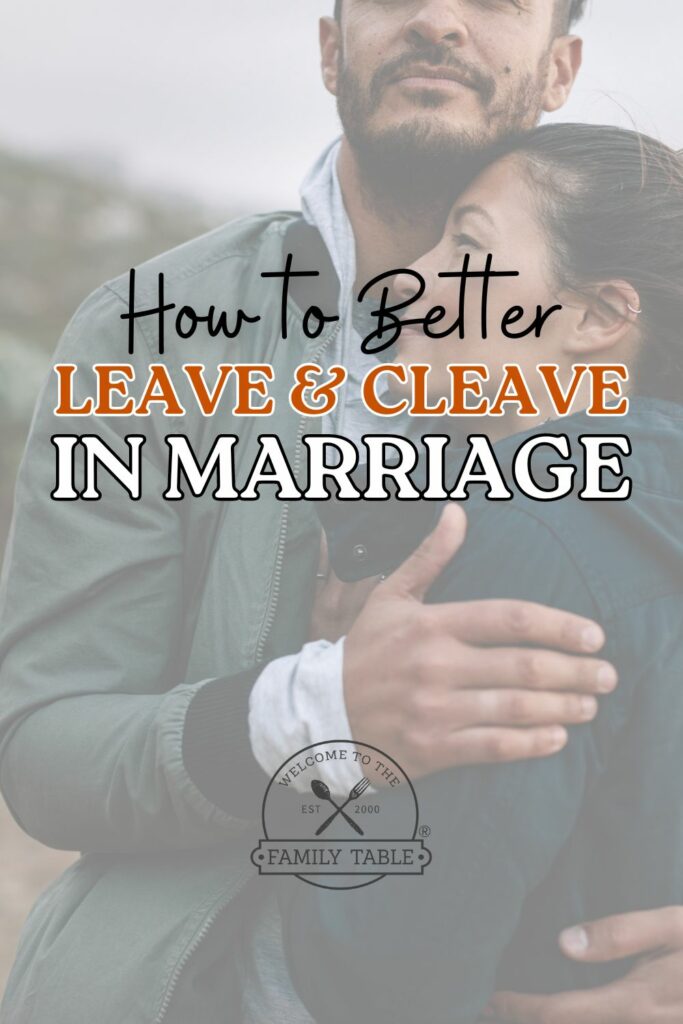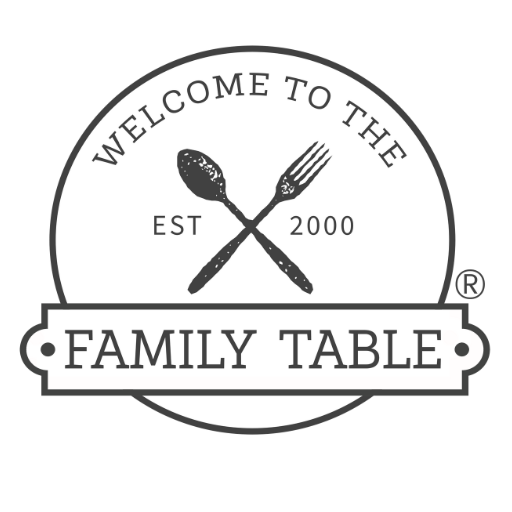How to Better Leave and Cleave in Marriage
When my husband Ted and I married almost fifteen years ago, the idea of “leave and cleave” wasn’t a foreign concept to us.
We’d read it in books, heard it in church, and even talked about it with our pre-marital mentors. In fact, with our “I do’s,” we had every intention of leaving behind dependence on our parents in favor of an interdependent relationship with each other.
But “leave and cleave” turned out to be harder in practice than it was in theory.
Looking back, we now realize that we initially missed an important aspect of “leave and cleave.” It was this:
Leaving and cleaving demands that we redefine who our immediate family is.
As I talk about here, Ted and I failed to understand that as soon as we said “I do,” we became a new independent family, as in “immediate” family.
And our parents?
Well, they moved into the “extended” family category. We still loved and honored them, in addition to being sensitive to their desires, but they didn’t hold the same place when it came to our loyalties and priorities.

How to Better Leave and Cleave in Marriage
Maybe you can relate. Perhaps you’re newly married and are struggling to practice the “leave and cleave” of marriage well. If that’s the case, here are three steps you can take to help.
Give your spouse priority over parents and siblings
It’s likely that you were fairly independent from your parents by the time you got married. Even so, as a single, you may have still looked to your parents for practical advice, emotional support, and often catered to their interests above those of others.
Getting married doesn’t mean you can’t still look to your parents for wisdom, friendship, and love. You can. What is does mean, though, is that you need to reorder who ranks the highest on your priority list. It should now be:
- God
- Spouse
- Others, including parents and siblings
At first, this may require you to go against what’s been your previous, normal inclinations pre-marriage. But the more you make the choice to consider your spouse first, the easier and more natural it will become.
Determine to make decisions together first
As Ted and I talk to couples preparing to get married, we often hear stories of how one individual in the relationship tends to go to his or her parents first when making decisions. Sometimes this is then carried into marriage.
One way to better “leave and cleave” is to choose to go to each other first with decisions, before seeking outside counsel, even from close family. This accomplishes three things:
- Strengthens your interdependence – or the interweaving of your stories
- Shows that you value and appreciate your spouse’s thoughts, feelings, and opinions
- Gives you the opportunity to decide together whether to go to others for wisdom, advice, and help
Decide not to involve in extended family in marital conflict
When you and your spouse have conflict, do you immediately run to your family? If you’re regularly involving your parents or siblings in your marital conflict, I encourage you to rethink that decision.
And, just to clarify, I’m not referring here to issues of abuse, destructive behavior, or infidelity. You definitely need family support, encouragement, and wisdom when it comes to these areas. I’m talking about conflict related to finances or parenting or how to load the dishwasher.
When it comes to these types of conflict that aren’t destructive, involving family may:
- Unintentionally sour or taint your spouse’s reputation with your family
- Cause your spouse to feel like you and your family are ganging up against him or her
- Make it hard for your family to let go and forgive, even after you have
Instead, strive to work out your marital conflicts with your spouse privately first. And, if you do need outside help from others including family in resolving it, seek it together.
To Leave and Cleave Takes Time
Ted and I discovered that leaving and cleaving takes time. For us, it wasn’t instantaneous. Instead, it was a transition that happened over several years and required a lot of trial and error to figure out how to do well.
While it’s my hope that it doesn’t take you and your spouse that long, I also encourage you to be patient with one another. Recognize and affirm that times your spouse chooses you above others.
And, day by day, as you both make the intentional decision to cling to one another above others, I think you’ll find that you are slowly, but surely “leaving and cleaving” well.




